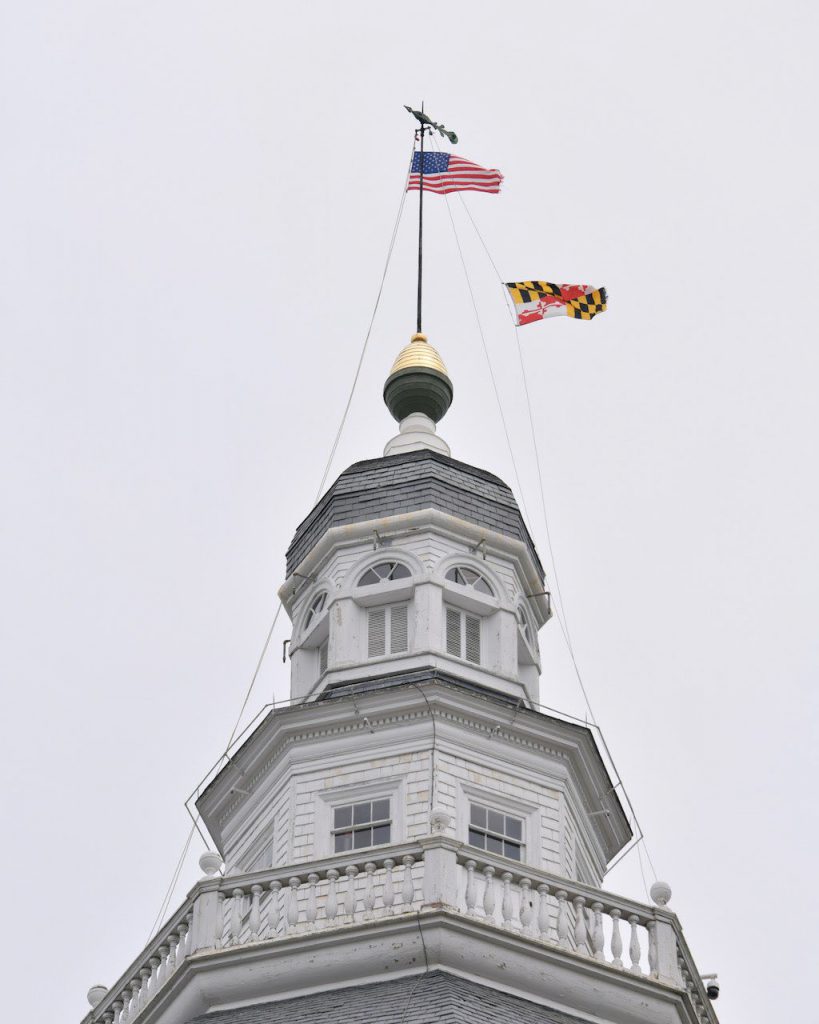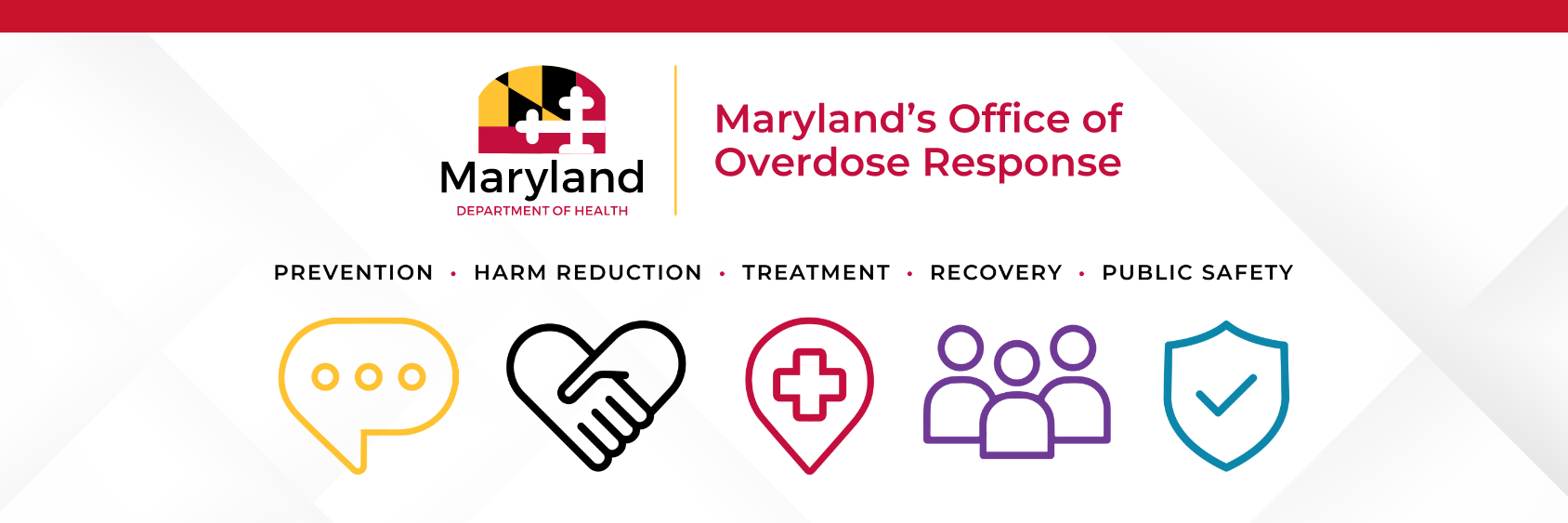Maryland Observes International Overdose Awareness Day
For immediate release: August 31, 2021
Governor Hogan Order Flags Flown at Half-Staff in Remembrance of Marylanders Who Lost Their Lives to Drug Overdoses

ANNAPOLIS, MD – Flags in Maryland are at half-staff today to commemorate International Overdose Awareness Day, observed annually on August 31st in remembrance of people who have died of a drug overdose. Governor Larry Hogan also directed the Government House to be lit purple to mark the occasion and in recognition of September as National Recovery Month.
“Today is a solemn occasion for all Maryland families, our friends, and our neighbors who have lost a loved one to the disease of addiction,” said Governor Hogan. “This is not only a day to honor their memories, it is a call to action – we must all work together to end these preventable deaths and to get help to those who need it.”
Lt. Governor Boyd K. Rutherford, chair of the Inter-Agency Heroin and Opioid Coordinating Council will present a Proclamation commemorating International Overdose Awareness Day during an event at St. John’s Episcopal Church in Ellicott City today.
“Each one of us has a story about how our lives are impacted by substance use disorders and the opioid crisis,” said Lt. Governor Rutherford. “There is power in sharing those experiences with others, including the next generation to empower them to make different choices and make a difference. We are committed to using every tool at our disposal to support individuals battling addiction, their families, and communities for a brighter future.”
This year’s commemoration comes during a time when fatal overdoses have reached historic levels in the United States. According to estimates by the Centers for Disease Control and Prevention, over 93,000 individuals lost their lives to drug overdoses in 2020, the most ever recorded in the U.S. This represented an increase of 29.4 percent from the previous year. Fatal overdoses also increased in Maryland last year, though by a smaller margin. According to a report issued by Maryland’s Opioid Operational Command Center (OOCC), fatal overdoses involving all types of drugs and alcohol increased by nearly 18 percent in the state in 2020.
“Losing a loved one to a drug overdose is devastating and the loss remains with us forever,” said Maryland Department of Health Secretary Dennis R. Schrader. “The COVID-19 pandemic has had a particular and significant impact on those with substance use disorders, and today is a reminder to reach out to anyone who is struggling, get them the support they need, and help us prevent further drug overdose deaths in Maryland.”
To address increasing overdose rates, the Hogan-Rutherford administration recently launched the Maryland Stop Overdose Strategy, or Maryland SOS, campaign. The initiative seeks to leverage available resources to support a wide variety of prevention, enforcement, and treatment and recovery initiatives. In June, the administration announced $4 million in grant awards to Maryland’s 24 local jurisdictions to assist their opioid crisis response efforts. This was followed by another $5.5 million in competitive grant awards in July, which will support 39 high-impact programs across the state.
The administration, led by the OOCC, is also hosting a series of regional Maryland SOS town halls as a part of the campaign. The events are intended to give individuals an opportunity to share their experiences of how the opioid crisis has affected their lives and communities. Lt. Governor Rutherford, the OOCC, and the Maryland Department of Health participated in the first town hall focused on Western Maryland, last Thursday at the Allegany College of Maryland in Cumberland. Officials were also joined by representatives from local Opioid Intervention Teams (OITs) to listen to members of the public share their concerns and ideas for preventing overdose deaths. OITs are multiagency coordinating bodies that seek to enhance collaboration to fight the opioid crisis at the local level.
Administration officials are also using the town halls as an opportunity to raise awareness about the Opioid Restitution Fund, which can be used for additional funding opportunities in the coming years. The fund was established in 2019 to guide the allocation of funds that Maryland receives as a result of legal action against opioid manufacturers and distributors.
“The Opioid Restitution Fund will be a powerful tool in our fight against the opioid crisis for many years to come,” OOCC Executive Director Robin Rickard said. “Although many of the proposed settlements are still being finalized, we are laying the groundwork today to make sure we are ready to get assistance to people as quickly and effectively as possible.”
The next Maryland SOS Regional Town Hall will be held on Wednesday, September 15th at Salisbury University in Wicomico County.
Marylanders who are struggling with a substance use disorder are encouraged to contact Maryland’s crisis hotline by calling 2-1-1 and pressing 1 or by texting their zip code to 898-211. The hotline can help people find treatment services, support groups, and other behavioral health resources nearby.
###
Before It’s Too Late is the state’s effort to bring awareness to the opioid and substance use crisis and to mobilize resources for effective prevention, enforcement, and treatment. The Opioid Operational Command Center is Maryland’s principal coordinating office for addressing the opioid crisis. Under the guidance of the Inter-Agency Heroin and Opioid Coordinating Council, the OOCC leads Maryland’s opioid-related strategic planning and coordinates the efforts of approximately 20 state agencies, our community partners, and all 24 local jurisdictions throughout the state.


 1-888-373-7888
1-888-373-7888 233733
233733